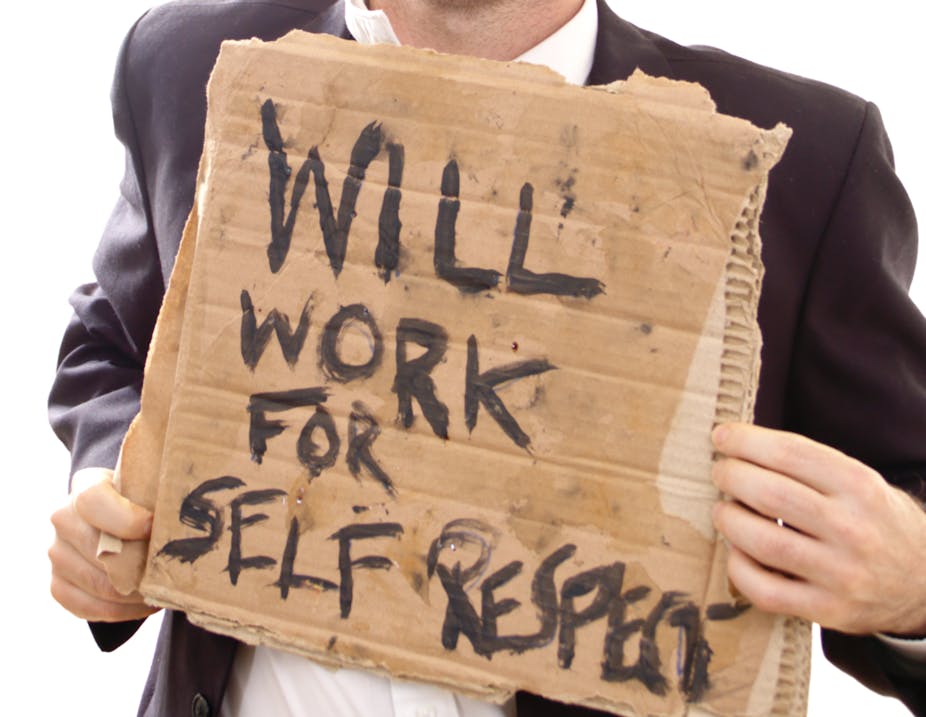The last several decades have seen a steady increase in the profile and celebration of entrepreneurship in the UK. It is associated with economic development, growth and making a positive contribution to the country. There is plenty of evidence to support this – for example the immensely valuable Global Entrepreneurship Monitor research project, which compares rates and types of entrepreneurship throughout the world. As a consequence, developing and investing in entrepreneurship has never been more prioritised, as evidenced by the UK government’s recent Enterprise Bill, with its raft of measures to support entrepreneurs.
Yet there is another side to this growing army of entrepreneurs. Far from the Levi Roots and Michelle Mones of the world, many others appear to fall into the category because it is the only one available to them. They are not planning how to invest their next million or hiring teams of new employees to deliver their vision. They are living in poverty and desperation, with little prospect for the future. Worse, policymakers and enterprise specialists seem barely to have noticed.
What do we mean by entrepreneurship anyway? Governments and the media use it most often to describe those who are employed independently – whether sole traders or people who employ others. The term “entrepreneur” evokes ideas of innovation and opportunity, which are then transferred to these people. Unfortunately the reality is not quite so affirmative.

Behind the statistics
According to latest statistics, the business creation rate has risen by 55% since 2000. Yet the proportion of enterprises that have employees has actually fallen from a third to a quarter, while the proportion of those with no employees has risen. This means that a lot of the entrepreneurship “success” that we hear about is actually represented by a 73% rise in the number of people who have become self-employed.
Now, being self-employed has many advantages – most compellingly, individuals create their own job. There is a net economic benefit to that, and potentially social benefits too, like flexibility. Yet within this, there is a group that has been largely neglected: those for whom self-employment is in fact negative, undermines their quality of life, and is even exploitative.
For at least the last decade, there has been speculation in the employment literature that organisations are increasingly changing their employment model from employee-based to relying on self-employed contractors. We see it in the IT sector and in new media, for example. It means that many people previously in employment are now self-employed, meaning they do broadly the same job but without employment rights, unions, and in some cases at lower pay. This has been happening in some sectors for decades (construction, for example), yet academics have not really explored the phenomenon.
In a similar vein, the New Enterprise Allowance – a UK welfare benefit that provides income to support “business” creation – has been introduced to incentivise long-term unemployed people into self-employment. Again, the extent to which this has had the desired positive effect has not been explored.
Reality bites
I have been involved in a study of self-employment in relation to contractors and those needing an alternative to unemployment. We interviewed key people in Scotland working in business support, poverty alleviation and social support. We also collected the stories of a small sample of people who are self-employed and in these unexplored categories.
We found there is clearly a group of “entrepreneurs” who are living in poverty (as defined by UK government measures). We have no idea how representative our group is among the self-employed, but our research suggested it may be prevalent and further investigation is certainly required.
Turning workforces into contractors is an issue, as we expected, but self-employment as an alternative to unemployment was even more concerning. In many cases, people were counted as self-employed after their welfare benefits had been removed or where “regular” employment was inappropriate or unavailable. These individuals were essentially forced into self-employment.

We found evidence of people with very limited ability or resources to have any hope of a continuing income as a self-employed person. The “businesses” that had been created were low value, with limited sustainability potential, and in opposition to the government’s aspirations for an economy driven by knowledge and innovative entrepreneurs. They included activities like crafts, cleaning, grass cutting and odd jobs. People were often earning well below minimum wage, with precarious income as a consequence of precarious availability of work. We observed people needing crisis support and food banks, and not much savings or pension potential. In many cases these were desperate people with no alternative.
This is a very different picture to that painted by the celebratory statistics. In our excitement about the headline contributions of entrepreneurship, we are in danger of failing to engage with the reality of some types of self-employment. Whether contractualised labour or self-employed as a last resort, the “entrepreneurs” observed in our research are very far from what that word conjures up. Neither are they contributing much to the economy. It’s time everyone started paying attention.

